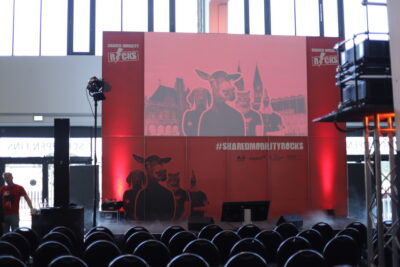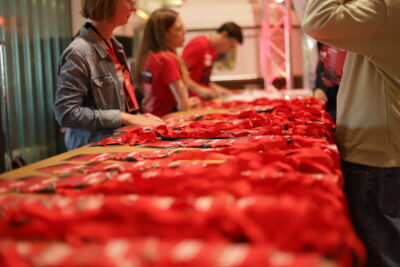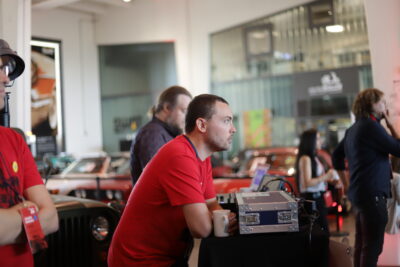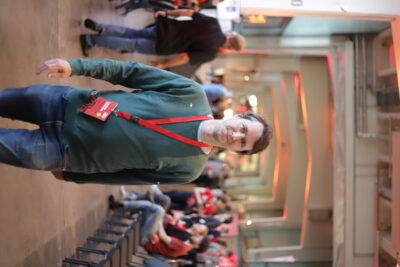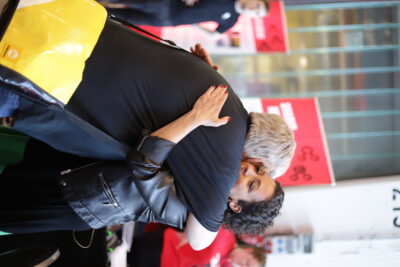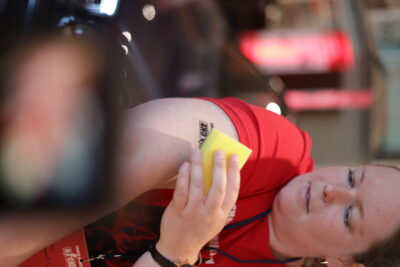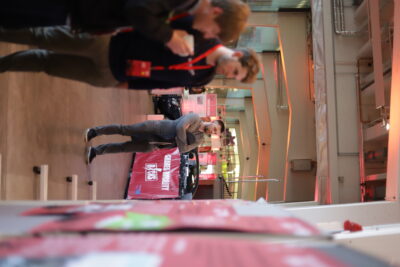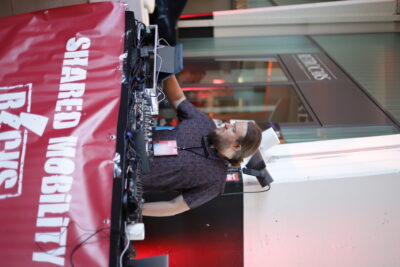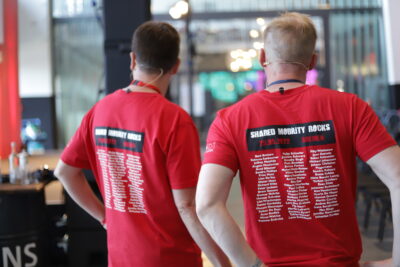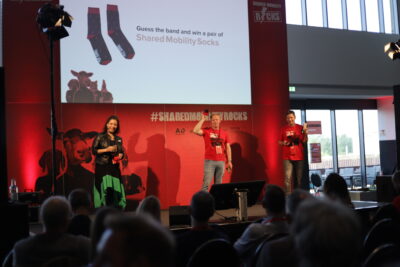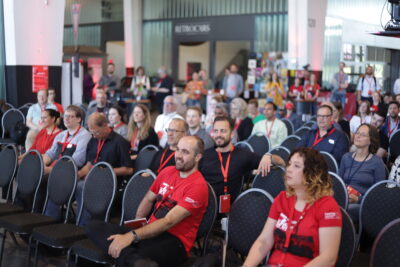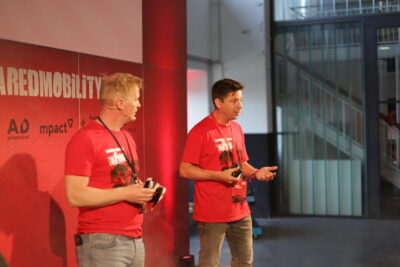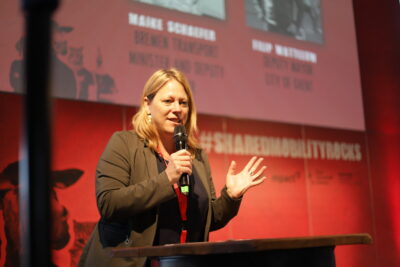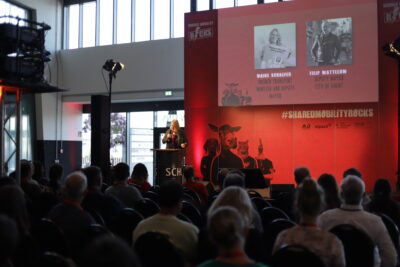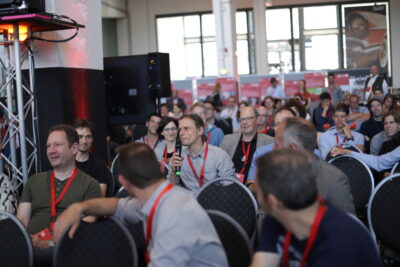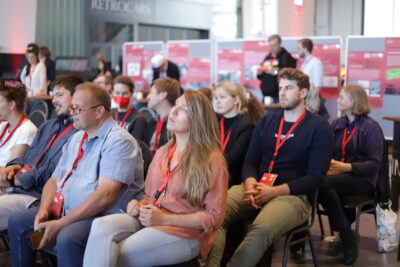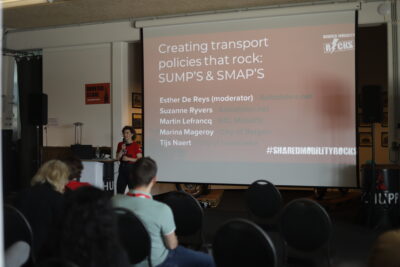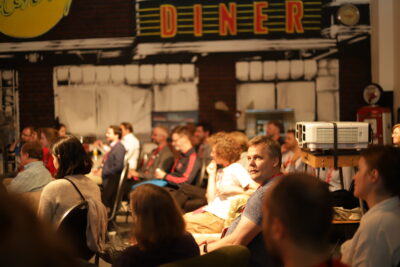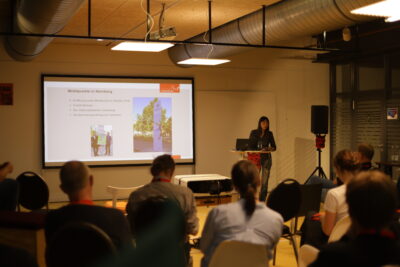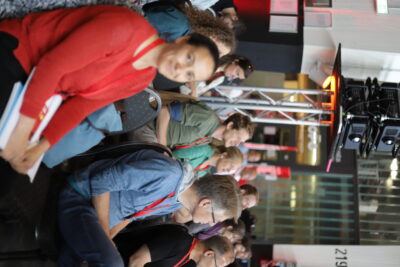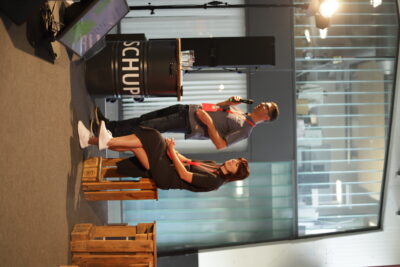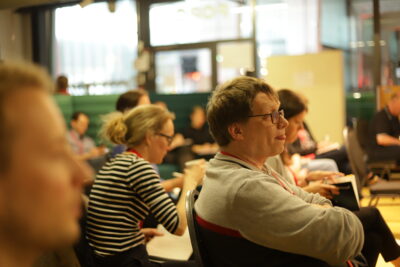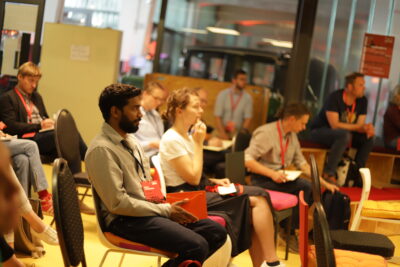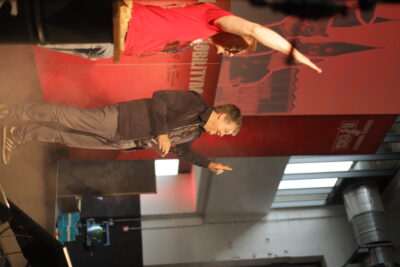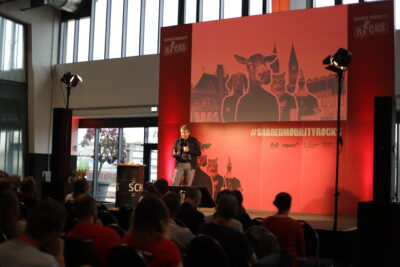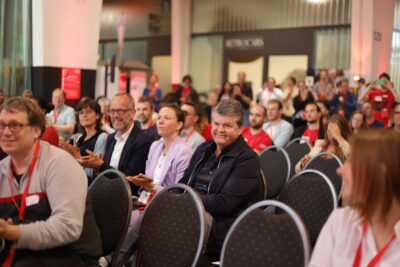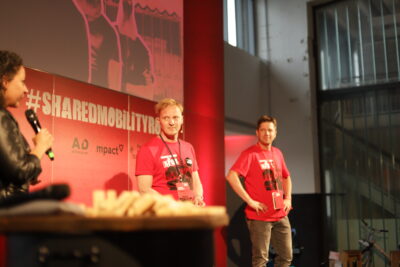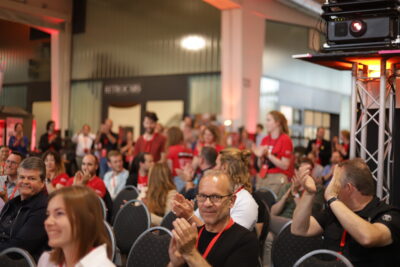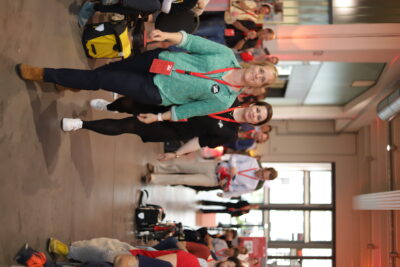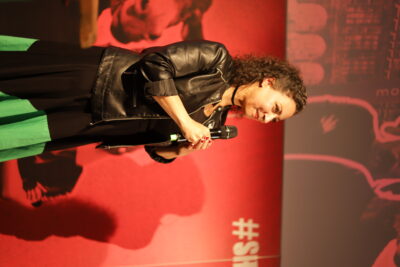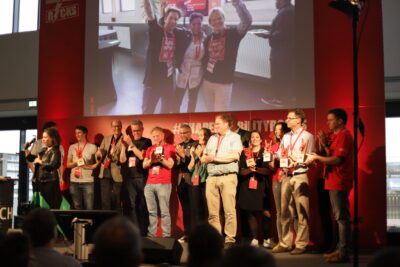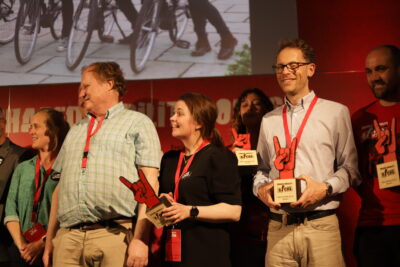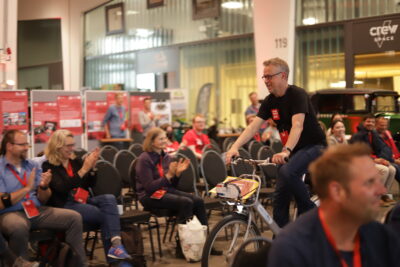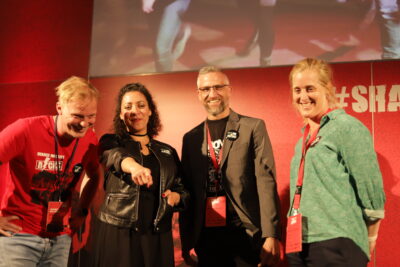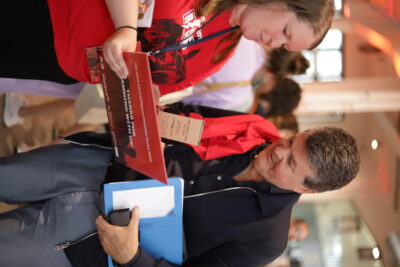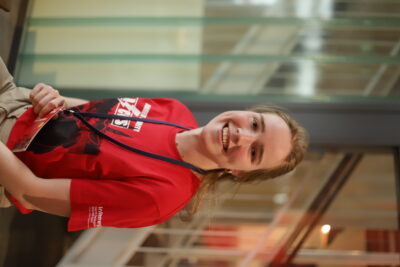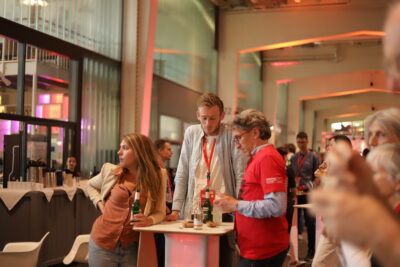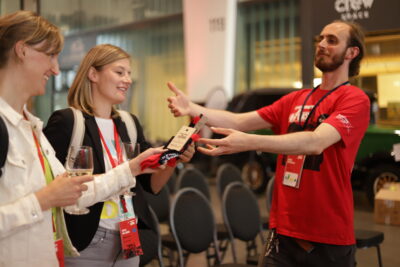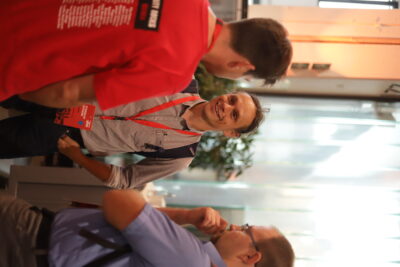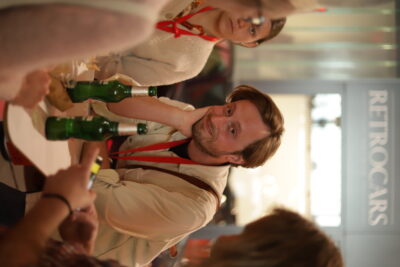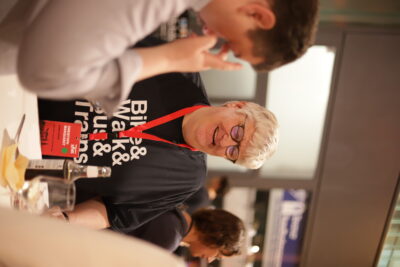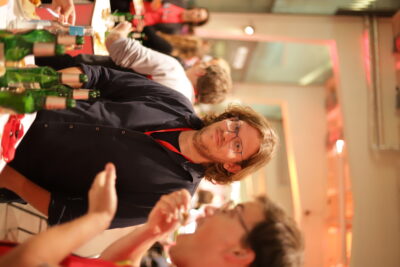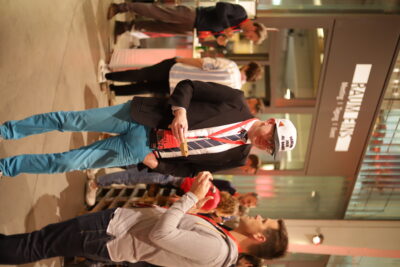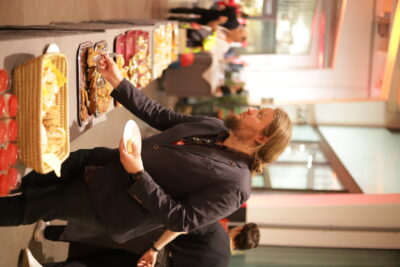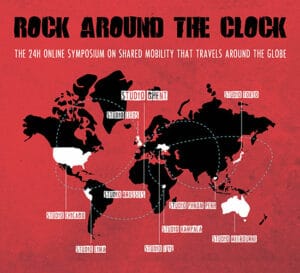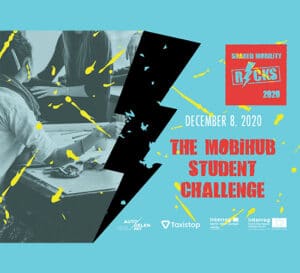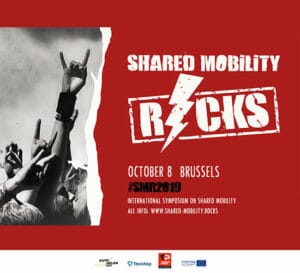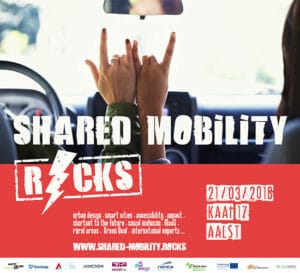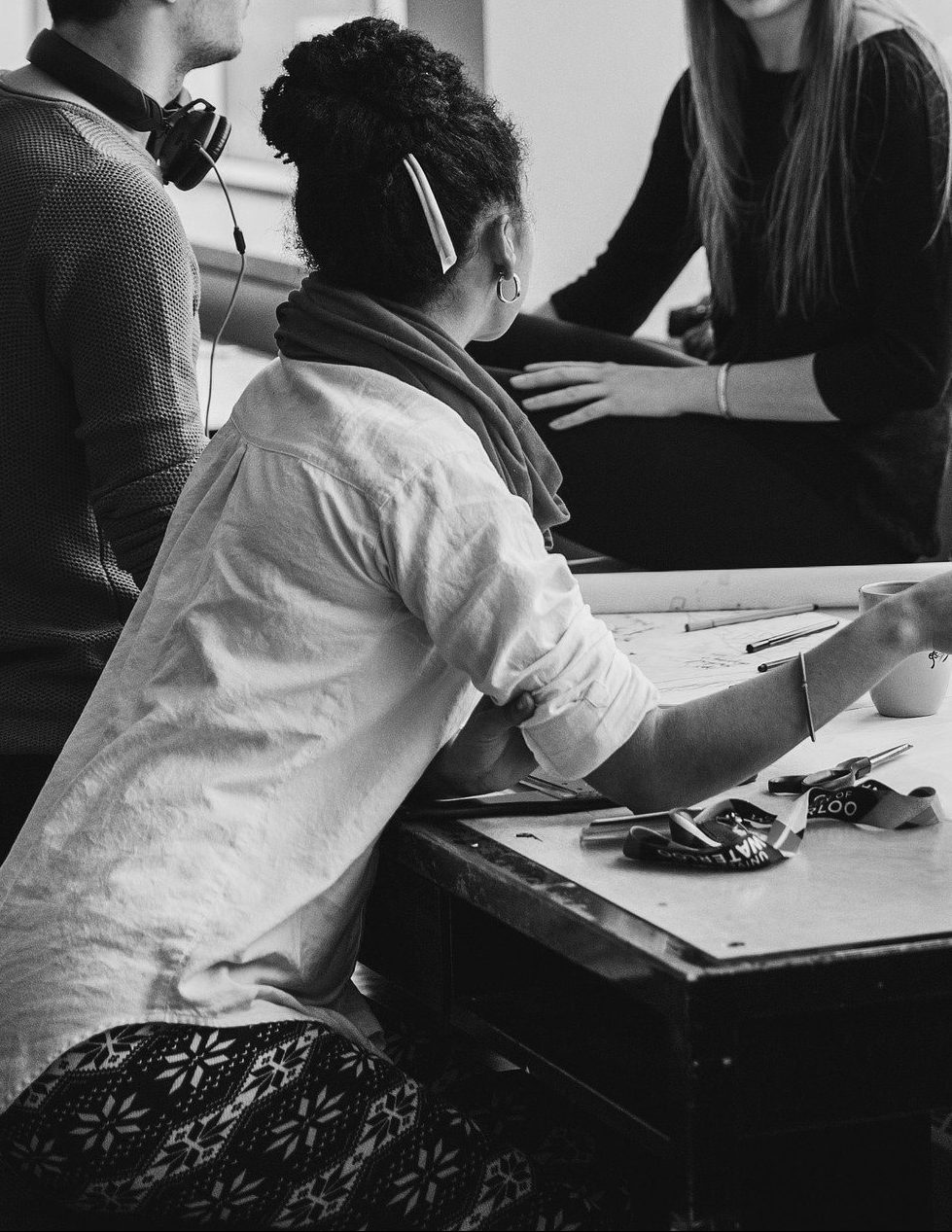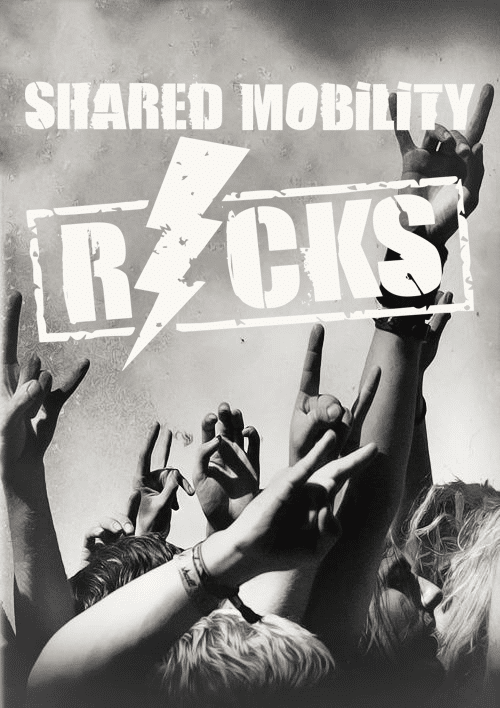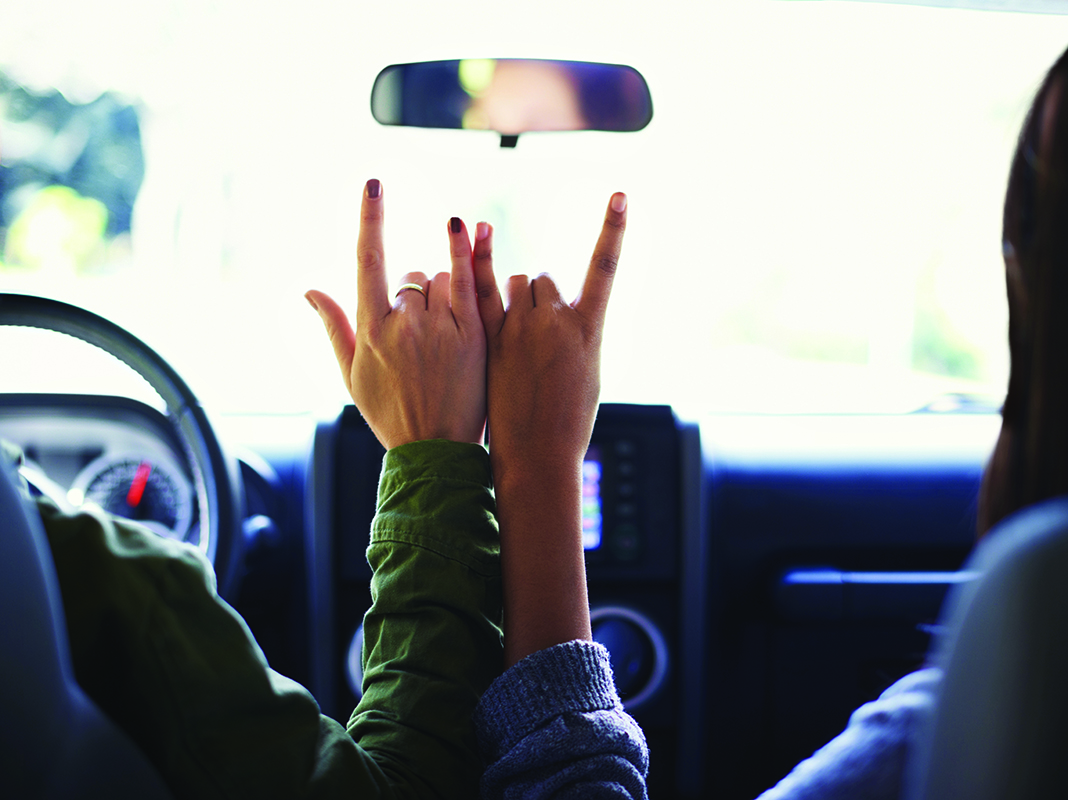Shared Mobility Rocks 2022 – what a show it was!
Less car ownership, more sustainable mobility, less emissions, and more urban space. What is the link between these? Exactly: shared mobility! Queen, Neil Young, Led Zeppelin, and the Red Hot Chili Peppers. What kind of music is this? Exactly: rock! Shared mobility, transnational cooperation, innovation, and Interreg North Sea Region. What do you get when you mix these together? Exactly: SHARE-North. What event do you get when you combine all these elements? Exactly: Shared Mobility Rocks 2022!
On May 25, 2022, Autodelen.net, Mpact and the City of Bremen hosted the fourth edition of Shared Mobility Rocks in Bremen. Shared Mobility Rocks is an unconventional international symposium on shared mobility for planners, operators and research institutions. This year, it was also the final conference of the SHARE-North project, an EU-funded Interreg North Sea Region project comprising of shared mobility experts from the public and private sectors, NGOs and research field. The project ran from 2016 until 2022.
Shared Mobility Rocks 2022 took place at Schuppen Eins, the Centre for Mobility and Automobile Culture. By organising the event there, however, we turned it into the centre for a new mobility and automobile culture: sharing! We welcomed over 200 participants from all across Europe (and even Japan, Mexico and Uganda), enjoying the presentations from 50 speakers and moderators.
The evening before, on May 24, 100 lucky participants got the chance to go on a boat trip with the SHARE-North consortium and to taste the Shared Mobility Rocks beer. That’s what Shared Mobility Rock is all about: networking, vibes, knowledge exchange and impact!
Rebecca Karbaumer (City of Bremen), Jeffrey Matthijs (Autodelen.net) and Angelo Meuleman (Mpact) kicked off this edition of Shared Mobility Rocks on the mainstage. Next, the headliners inspired the participants: Maike Schaefer, the Bremer Transport Minister, and Filip Watteeuw, Deputy Mayor of Ghent. They all were joined then by Arnd Bätzner and Sandra Phillips for the uncomfortable session. The audience and the speakers had to give their opinion on four boldy formulated statements about shared mobility related to its potential and inclusiveness. The crowd cheered, booed and stood up!
After these initial acts, the participants joined a thematic session in English (mobihubs, shared mobility impact and shared mobility policies) or German (legal framework for shared mobility). After all this intellectual food it was time for some real food: a tasty and healthy lunch to catch up with each other after two years of online events! After lunch, it was time for some movement and interaction for a better digestion. The crowd could choose an excursion to a site in the surroundings of the venue (mobihubs, housing development and repurposing space) or an interactive jam session (data standardisation, creating inclusive hubs and inclusive digital mobility services).
In the afternoon, the participants attended another session in English (autonomous mobility, a dialogue between operators and municipalities, or mobility management for businesses and employees) or German (mobihubs). The last part of the official programme of Shared Mobility Rocks took place on the mainstage. Friso Metz (Advier) and Rebecca Karbaumer (City of Bremen) presented the ‘Planner’s Guide to the Shared Mobility Galaxy’, a guide created by the SHARE-North consortium specifically for planners and municipal decision makers to make the galaxy of shared mobility a bit easier to understand. Next, Esther De Reys (Autodelen.net) and Arne Stoffels (Mpact) honoured the first cities participating in the European Shared Mobility Accelerator programme, a tool for local governments to assess their position on the shared mobility track. After that, Bart Somers – Vice-Minister President of the Government of Flanders – motivated the crowd to keep rocking in a free and shared world. Lastly, the whole SHARE-North consortium came on stage to celebrate the end of the project.
What a show it was! In 2023, Shared Mobility Rocks will cross the ocean to be organised in Vancouver, Canada. Michael Glotz-Richter handed the official ticket to Sandra Phillips from movmi at the very end of the event. Of course, the official programme switched seamlessly to the afterparty with DJs Tjalle Groen (Mpact) and Bram Seeuws (Autodelen.net).
This was Shared Mobility Rocks 2022. We had a blast and we hope you did too! Special thanks to all our performers and everyone who rocked with us. See you next year!
Previous editions
The Shared Mobility Rocks adventure started in 2018 with the first edition in Aalst (Belgium). The second edition took place in 2019 in Brussels. Due to Covid-19, the third edition was postponed. Instead, we organised a student challenge to imagine the mobihub of the future. In 2021 we went on a 24 hour online tour around the world connecting with different studios from our home studio in Ghent (Belgium).
